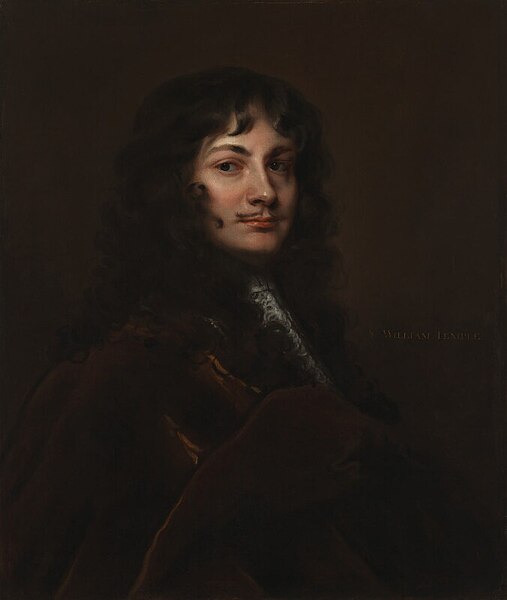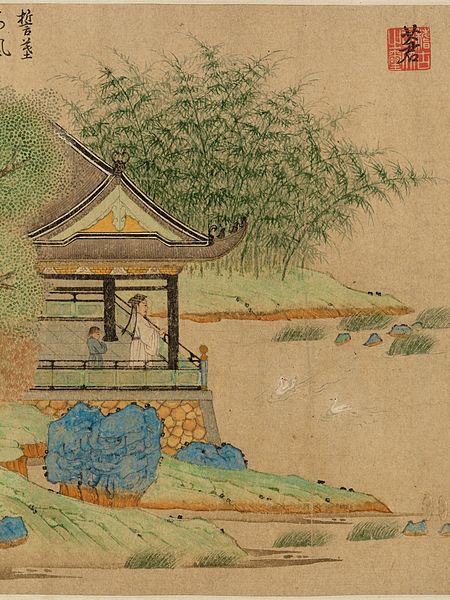Sir William Temple, 1st Baronet
Sir William Temple, 1st Baronet was an English diplomat, politician and writer. An important diplomat, he was recalled in 1679, and for a brief period was a leading advisor to Charles II of England, with whom he then fell out. Temple subsequently retired to the countryside, and thereafter occupied himself with gardening and writing. He is best remembered today for two aspects of his life after retirement: a passage on the designs of Chinese gardens, written without ever having seen one, and for employing a young Jonathan Swift as his secretary. The first is sometimes given as an early indication of the English landscape garden style, praising irregularity in design.
A portrait of Temple
"Dorothy, Lady Temple" by Gaspar Netscher 1671
Funeral hatchment of Nicholas Bacon (1686–1767) of Shrubland Hall, Coddenham, Suffolk, husband of Dorothy Temple, grand-daughter of Sir William Temple. The arms of Temple are shown as an inescutcheon, as appropriate for an heiress
The Chinese garden is a landscape garden style which has evolved over three thousand years. It includes both the vast gardens of the Chinese emperors and members of the imperial family, built for pleasure and to impress, and the more intimate gardens created by scholars, poets, former government officials, soldiers and merchants, made for reflection and escape from the outside world. They create an idealized miniature landscape, which is meant to express the harmony that should exist between man and nature.
This picture of the Yuyuan Garden in Shanghai (created in 1559) shows all the elements of a classical Chinese garden – water, architecture, vegetation, and rocks.
A miniature version of Mount Penglai, the legendary home of the Eight Immortals, was recreated in many classical Chinese gardens
The calligrapher Wang Xizhi in his garden, the Orchid Pavilion
The Lake of the Clarity of Gold, an artificial lake and pleasure garden built by Emperor Huizong of Song at his capital, Kaifeng







